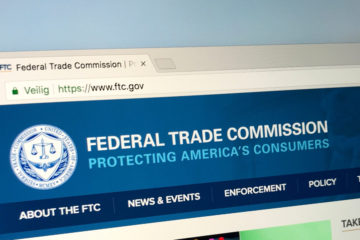In the world of e-commerce, few names resonate as strongly as Amazon. Starting from humble beginnings in a Seattle garage, Jeff Bezos transformed his online bookstore into the globe-spanning retail giant we know today. The secret behind Amazon’s success lies in its blend of competitive pricing, extensive product selection, and rapid delivery. Amazon’s platform empowers small businesses by providing them with access to a vast customer base, facilitating their growth without the need for substantial investment in independent online infrastructure.
The Federal Trade Commission (FTC) has taken issue with several of Amazon’s business practices, culminating in a significant antitrust lawsuit. Below, Market Institute Senior Fellow Norm Singleton delves into the FTC’s allegations and the broader implications for Amazon and its myriad of users:
“When Jeff Bezos started his online bookstore from a rented Seattle garage in 1994, no one thought Amazon would grow into the world’s largest online retailer, selling everything from toilet paper to flatscreen TVs. Amazon’s growth is due to its combination of low prices, wide selection and, of course, quick delivery. One reason Amazon is able to offer such a wide variety of products is that it allows smaller retailers to use its platform. This allows consumers to discover small businesses offering hard to find products, or selling products for lower prices than other vendors. It also allows small businesses to reach new customers around the country without having to invest the time and expense of creating and growing their own websites.
This is a win-win-win for consumers, small business, and Amazon itself. So, who could object? The Federal Trade Commission (FTC) specifically. FTC Chair Lina Khan came to prominence as a law student with her article Amazon’s Antitrust Paradox in which she argued that the government must aggressively use antitrust enforcement to counter the threat to our economy—and even our democracy—posed by big tech companies like Amazon. Therefore, it was not surprising when the FTC filed a major antitrust suit against Amazon last year.
The FTC’s suit against Amazon alleges that Amazon is abusing its market power by requiring small businesses that wish to use its platform to agree to never sell their products on another platform for less than on Amazon. This complaint ignores the fact that offering the lowest prices on the internet is part of Amazon’s business model, going back to the days when Jeff Bezos was selling books via dial up internet. Allowing a third party vendor to undercut the price it charges on the Amazon’s platform would make Amazon less appealing to consumers.
Another complaint is that third party vendors must use Amazon’s shipping and warehousing services in order to participate in Amazon’s popular Prime program. Once again, the FTC is ignoring the legitimate business reasons for this requirement. Guaranteed one-, two-, or even same day-delivery is a key reason why Prime is so popular. Requiring third party-vendors that wish to participate in Amazon Prime to use Amazon’s warehousing and shipping services is the only way Amazon can ensure those businesses can meet Prime delivery standards and retain the value consumers gain from a Prime membership.
The FTC also claims that Amazon has been increasing the fees small businesses must pay to use the platform. This assumes that the FTC bureaucrat sitting in a DC office is somehow better able to determine the “correct” fees to charge small businesses than Amazon executives who are on the ground and know the many changing factors that go into setting a price. Therefore, if small businesses think Amazon is charging exorbitant fees or imposing unreasonable conditions to use the platform, they are free to leave Amazon for another platform.
The FTC claims that Amazon is mistreating its consumers by “cluttering” search results with paid advertising that makes it difficult for consumers to find the “best” products, as opposed to those with the biggest advertising budget. This assumes that consumers are unwilling or unable to scroll past the paid advertisements and look for the products with the best consumer reviews. Amazon’s critics have also criticized the company for allegedly engaging in preferencing, which is when a company manipulates its search results so that its own products appear at the top of the search. Like the complaints against advertising, the complaints against preferencing assume people are too lazy and/or stupid to scroll through more than one page of search results. It also ignores the fact that Congress has refused to pass legislation outlawing preferencing.”


